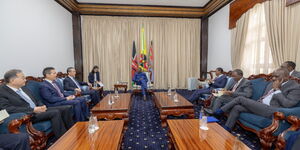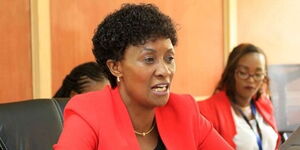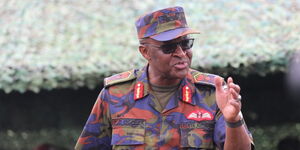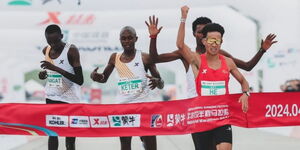ODM leader Raila Odinga is championing Parliament to raise the debt cap beyond the Ksh9 trillion mark.
This would allow President Uhuru Kenyatta to revive the economy, support women and youth through a stimulus program, and successfully vaccinate the entire nation.
The former Prime Minister supported Uhuru’s calls to borrow funds while speaking in Mombasa County, on Wednesday, July 21.
“The Covid-19 pandemic has subjected us to numerous challenges. Some of these are economic deterioration, loss of jobs, and hunger. I advise my brother Uhuru to copy US President Joe Biden and unveil a stimulus program that will benefit the citizens.
“We should vaccinate a huge population and open the economy like in the UK. In Kenya, we have vaccinated nearly 1 million individuals only. No matter how expensive purchasing the drugs would cost, if we have to borrow, let us do so. Parliament should also raise the debt cap so that money can be given to the mama mboga and youth too,” Raila advocated.
He added that Uhuru should also upgrade the Kazi Mtaani to support the youth and inject more funding into the economy. Raila stated that the aforementioned measures would revive the economy. This is the bottoms-up approach Raila unveiled in his 15-point blueprint for the 2022 General Elections.
Raila U-turn on debts
He has, however, made a u-turn after warning the government to be cautious about borrowing foreign loans. In 2019, while addressing a summit on infrastructure financing in Africa held in Nairobi, he called on Kenya to utilise its resources first before turning to international donors.
“We are here to think about what we can do for ourselves as Africans before we go to the World Bank, EU or to the Chinese,” Raila stated.
Ruto warning on borrowing
Deputy President William Ruto, on the other hand, has numerously and publicly opposed borrowing, insisting that he would have unveiled strategies better than those Uhuru has relied on.
In an interview on Citizen TV in April 2015, he lamented that his boss was bowing down to foreign pressure and demands and subjecting Kenya to loans and taxes.
“I would not do what the International Monetary Fund (IMF) is recommending to us as this would crash the economy and have a spiral effect later. I would cut down development into two. I would invest Ksh200 billion in brick & mortar and Ksh200 billion in stimulus and production," he opined.
Uhuru on Taxes
The public debt crossed Ksh7.28 trillion in December 2020 and was projected to rise to Ksh9.37 trillion in 2023.
The Treasury is under pressure to raise money to finance the Ksh3.6 trillion 2021/22 budget and has turned to taxes as its major source of funds. In early July 2021, Uhuru signed into law new airtime and loan taxes despite Kenyans already grappling with survival during the Covid-19 crisis.
"I will not lower taxes. You will have to pay because there is no other way we can build facilities, roads, and schools. We must pay taxes,” Uhuru declared on Wednesday, February 10, while speaking at the National Cargo Deconsolidation Centre in Nairobi
Effects of Borrowing and Taxes
The current Ksh255 billion and Ksh80 billion granted to Kenya by IMF and the World Bank respectively have come with stringent measures including pressure to cut down on wage budget, restructure parastatals, retrench civil servants, release names of secret investors benefiting from state tenders and the heightened war on graft.
The World Bank even asked Kenya to increase water bills for residents nationwide. Kenyans launched petitions against loans from IMF and urged the foreign donors to desist from lending the country more funds as a huge chunk ended up being embezzled.
Uhuru himself admitted that nearly Ksh2 billion was lost through graft daily. The investigative agencies have been lambasted for a slow fight on graft.
“It is good that the government is constructing roads and infrastructure, but this is coming at a cost for taxpayers who would repay through taxes and tolls on certain roads. The budget allocated to development is highly inflated. With the elections coming in 2022, Kenyans should brace for a tough time,” financial expert and Somakazi CEO Nicholas Gachara warned while speaking to Kenyans.co.ke.












